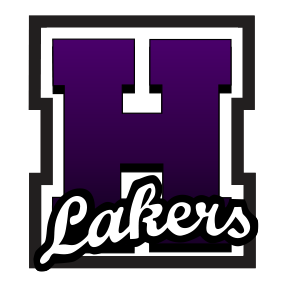The NYS Office of the State Comptroller has completed their audit of HCS and the final audit report can be found here https://5il.co/2viv6 and https://5il.co/2wgsl. The state auditors arrived in late December and spent approximately six months in the district reviewing all areas of the district related to fiscal management and financial operations. From that extensive review, the Comptroller talked with us about two areas they recommended we address:
Documentation of a district investment policy.
Preparing and adopting a written long term financial plan for district finances.
Documentation of a district investment policy: The District has always invested district funds in short and long term CD’s with local banks to take advantage of periods of high interest rates. The Comptroller recommends we look at more fluid investment vehicles that allow immediate access to district funds and have interest rates that change on a daily basis. The Comptroller’s assertion that the District could have brought in additional revenue by using different investment vehicles over the last few years is correct. However, in order to operate the system the Comptroller is proposing, the District would have needed to add staffing which would have eaten up a significant portion of the additional funds those investments would have generated. Should interest rates begin to lower, we would now have additional staffing we would not need since longer term investments would again become the recommendation and daily monitoring would not be necessary. Despite this, the District has implemented this recommendation of the Comptroller as of August 1st and will be using the Central Business Office at BOCES to serve as District Treasurer and regularly monitor District funds that have been invested. Should short and long term interest rates lower, we will adjust as needed to continue to maximize investment revenue.
Preparing and adopting a written long term financial plan for district finances. The District has always been, and always will be, very transparent regarding district finances and short and long term budgeting strategies. As discussed with the auditors, the state’s continued inconsistency with state aid funding, along with significant yearly cost increases in areas such as health insurance and utilities, has made the creation of and adherence to a long term financial plan impossible. The Board operates under very strict policies relative to fund balance and reserves, but when the state continues to threaten our revenue on a yearly basis, the creation of a written, long term financial plan seems like an exercise in futility. The School Board, Treasurer, and Superintendent DO discuss short and long term finances at every Board meeting, and DO create every yearly school budget with the long term financial future of the district in mind. However, we have yet to find a documentation tool that we believe allows for all of the allowances that need to be made within such a plan.
Regarding the Comptroller’s comments relative to overfunding of District reserves and excessive fund balance, the District firmly disagrees with both of these comments. It is correct that the current state limit on fund balance that is able to be carried over from year to year by public school districts is 4%. It is also correct that the District has exceeded that figure on a yearly basis during the time of this audit. However, the 4% fund balance limit is insufficient to the needs of any school district, especially those that the Governor continues to threaten with decreased state funding. During the budget development process, it is discussed during our Board meetings that every one of our proposed school budgets is developed with an 8-10% fund balance built in for unanticipated expenses or cost increases that may occur after the budget is adopted. During years where this fund balance is not needed in its entirety, the Board uses those dollars to fund our district reserves in a variety of areas to help the district prepare itself for future needs.
One specific example of the use of fund balance is the yearly funding of a district capital reserve. A capital reserve is created to help the district save todays dollars towards future capital needs such as construction or renovation projects. If the capital reserve fund cannot cover the necessary cost of a project, the District would need to go out to the taxpayers at that time for a tax increase to secure the funding for a project. Our district has never asked for a tax increase when proposing a capital project or construction need. We have saved wisely when we could, and used those dollars to meet the long term needs of the district.
The Comptroller’s recommendation in this area was focused on the creation of a written plan that documents the ongoing financial planning of the District. The District Office will be working to develop such a plan and this will be a focus of work in the coming year.
All audits are an opportunity to learn and get better in some way. This process with the auditors from the Comptroller’s office was no different. While we did not completely agree in every discussion or with every finding, we had an excellent dialogue and will always strive to do the best we can as the steward of the district finances.
For anyone that would like to discuss or ask any questions about the Comptroller’s audit or the audit process, Superintendent Bower will be holding a town hall meeting on Thursday, September 26th at 6pm in the High School Library. Hope to see you there! Go LAKERS!!

